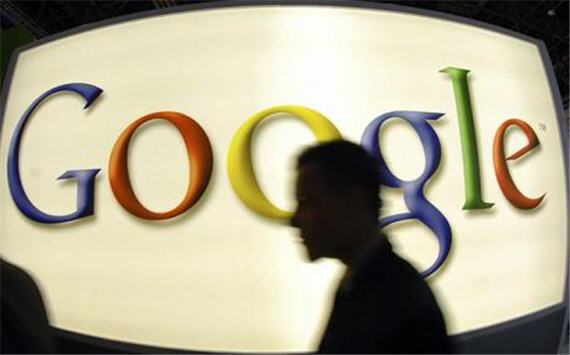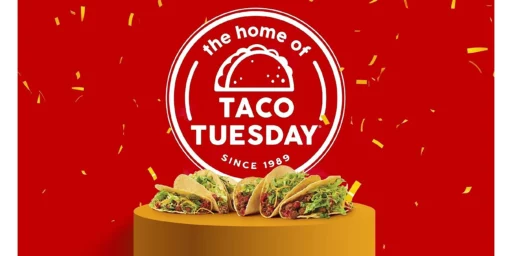Google Doesn’t Want People Using “Google” As A Verb
Google isn’t quite pleased that their company name is becoming something of a generic term:
You hear it in movies, TV shows, among your friends and you probably say it yourself: “I Googled her before I called her.” “I know because I Googled it.” “What’s the temperature in Fargo? Google it!”
But Google wants you — and the world — to stop using Google as a verb for looking up anything on the Internet — unless you actually used Google’s search engine to do so.
Google’s laser focus on how its name is used even extends to Sweden, where the country’s Language Council recently wanted to add the word “ungoogleable” to a list of new words as meaning something that can’t be found on the Web using a search engine. Note: a search engine — not necessarily Google’s.
Google objected, according to the Associated Press, “asking for changes showing the expression specifically refers to Google searches and a disclaimer saying Google is a registered trademark, the council said Tuesday.” The group also expressed its “displeasure with Google’s attempts to control the language.”
Google told NBC News Tuesday it did not ask the council to remove the word, but only wanted some editing of the definition.
With Google as the leading search engine, there’s little doubt these we mean Google when we say we Googled something. As comedian Ellen DeGeneres said on her show, talking about technology’s impact on our lives, “If you need to know something immediately, you can Google it now …. Ten years ago, if you said you were going to ‘Google’ someone, you got written up by Human Resources.”
So, what’s so bad about using “Google” as a verb for saying you looked up information on the Internet?
Ironically, because of Google’s “significant brand recognition,” the company “has started down the path of becoming synonymous with search engine services and, accordingly, towards the genericization of a trademark,” wrote attorney Matthew Swyers, founder of a law firm specializing in trademark rights, in an article for Inc. last year.
And becoming generic is bad because it threatens a company’s legal right to a trademark.
“Aspirin was originally a trademark of Bayer AG,” Swyers wrote. “Escalator was originally a trademark of the Otis Elevator Company. Even the word Zipper, at one time, was a trademark owned by B.F. Goodrich. Now, because of their respective fame and genericization, they merely refer to classes of products we see every day and do not identify the source of those goods.”
So, there’s a perfectly good business reason for what Google is trying to do here. They’ve got a valuable trademark and they don’t want to see it’s value diminished by being turned into a generic term that refers to looking things up on a search engine, any search engine. The problem Google faces is that languages develop and adapt naturally. Google became a verb, I’d suggest, largely because of the uniqueness of the word and because of the ubiquitousness of Google. By far, it is the search engine that most people turn to when they need to look something up. That may not always been the case, though, while I’m certain that Google wouldn’t want someone to say they “Googled” something only to realize they looked it up on Bing, they may not be able to control how the language develops. Just ask Bayer and Otis. Or, you know, they could Google it.







Or how about the Post Office-going postal.
Just xerox the playbook
Uh… Bayer didn’t lose its Aspirin trademark because it became genericized. They lost it because they got convicted of war crimes for that whole “making chemical weapons” thing during World War I.
Go bing yourself!
It’s amazing, isn’t it, just how purely capitalistic “progressives” become when it’s their own fat wallets at stake? Google is all about being egalitarian. Unless of course it might hit their own bottom line, in which case they’ll all but waterboard you for crossing it. Yankee Traders, personified. The irony would be lost on them.
In any event, Google is not the first iconic brand to become so much a part of the lexicon it morphed into either a verb or a noun. “Fed Ex it over to me.” “Put some Clorox on that stain.” “Windex that window for me.” Etc.
Google should think bigger picture. And not to be penny wise, pound foolish. Every time someone says “Google” something it’s free advertising, hello, for Google. If someone tells you to “Google” something you’re more likely to Google it, rather than to use Bing or one of Google’s other competitors. The putative effect on Google’s trademark rights ultimately are a drop in the bucket. Their patent, copyright and trade dress rights won’t ever negatively be affected. Their name and actual trademarked symbol won’t be affected. They should be more liberal about this whole thing. Literally and figuratively. Ironically.
I call any kind of ibuprofen “Motrin” and I call any kind of adhesive bandage a “Bandaid” and in the south if it is a carbonated beverage it is a “coke” and so on.
Google may not like it, but they aren’t going to win this. Google is a verb and is going to be used generically to refer to any kind of internet search.
Well if you ‘bing’ something you may end up with a paternity lawsuit….
I say I google stuff all the time, but I do use Google in doing so (at least primarily). I’ve used Alta Vista a couple of times.
Sorry, Google(TM), that ship sailed long ago. To “Google” something is synonymous with using a search engine to find it, and that’s not going to change any more than we’ll stop calling every single brand of facial tissue in existence a “Kleenex” or any hook-and-pile fastener “Velcro.”
@Gustopher: Heh, I hadn’t seen read your bing comment yet when I made mine.
I really haven’t met anyone who used the verb “google” to mean “use a generic search engine.” It is about using google, in 2013.
Perhaps the weirdness of this case is that the verb-use must be defended in order for the letter of “defending a trademark” to be satisfied. It isn’t so much that “I googled” could mean bing, it is that someone could claim the trademark was lost, even as it only meant to use the dominant search engine.
@Tsar Nicholas: It’s easy to see that you are not a trademark lawyer.
Whether using “google” means that people use Google preferentially as their search engine is, well, a secondary axis of analysis. If “to google” means “to use any computer search engine”, then, sorry, there’s a base for asking the USPTO to invalidate Google’s trademark (in as much their trademark refers to internet search services.)
One of the many reason why Google goes ballistic about on-line dictionaries using their name as a verb. This isn’t the first case of its kind.
P.S. Other trademarks that have gone poof through genericide: thermos, Murphy bed…..Xerox was well on the way of genericide but avoided it through a very vigorous ad campaign asking people to NOT use xerox as a word meaning “to copy.”
I worked at Xerox in the 80’s and actually met one of the lawyers whose job it was to send out ever-so-polite letters informing people that the correct term was “photocopy”. He also made the rounds telling employees like me what the point was: if they didn’t vigorously defend the trademark they could lose it. So when Disney is made aware that Miss Alma’s Neighborhood Pre-School and Luvin’ Care Center has painted Mickey on their walls, they send a cease and desist letter not because they give a hoot about the lost dollars (Miss Alma was never going to pay for a mural in the first place) but because if it were shown they knew about it but didn’t act, it could be taken that they were not vigorous in the pursuit of their trademark.
@john personna: I’m not sure that I agree. When I google something, I almost never use Google (TM) because I was forced to take a gmail account at my workplace and resent the extent of Google’s data mining. My main internet access is on Yahoo and, being a loyal Yahooligan, I limit my data mining opportunities to my home company as much as possible.
For checking my gmail, I use Google. Limiting my use to company email greatly limits the quantity of non-work related spam that comes my way.
@Tsar Nicholas:
Amazing, isn’t it, how people like to comment on politics without know what the words mean?
And on the other side of the pond, the Brits have been referring to the process of vacuuming as “Hoovering” for at least sixty years now. Even when they use a mechanical carpet-sweeper, that’s “Hoovering” the rug.
I doubt genericide can be stopped once it’s started, but you gotta do what you gotta do, just like Xerox and Kleenex did before them. In this case it’s kinda funny, just because google was a real word before Google claimed it … but not that funny I guess.
@Steven L. Taylor:
Inconceivable.
@rodney dill: good point
@Just ‘nutha ig’rant cracker:
Me, a pedant? 🙂
I would suggest the word “search.”
@john personna: No implication at all. But now you do “know” (or at least know of) someone for whom, in 2013, the word “google” is more generic than you thought.
@Steve V:
Xerox seems to have done better than Kleenex, possibly due to the “Kleenex” name (and trademark) dating to 1924 while the name “Xerox” didn’t come into being until the late 1950s. And, of course, a whole lot more people use facial tissue every day than photocopy something.
As genericized as “Kleenex” has become, the trademark is still in force, and is currently held by Kimberly-Clark, as it has been since 1955.
@Steve V:
but it was spelled “googol” and meant something completely different
I heard some TV host or radio dj say that he “binged” something. It sounded so silly ; an obvious attempt by Microsoft to buy hipness.
@MarkedMan: Ah, but that’s actually a different issue: that of abandonment of the trademark. Which gets really interesting when it’s a non-registered trademark and you’re talking about common law use.
(You can tell I’m a law student, can’t you?)